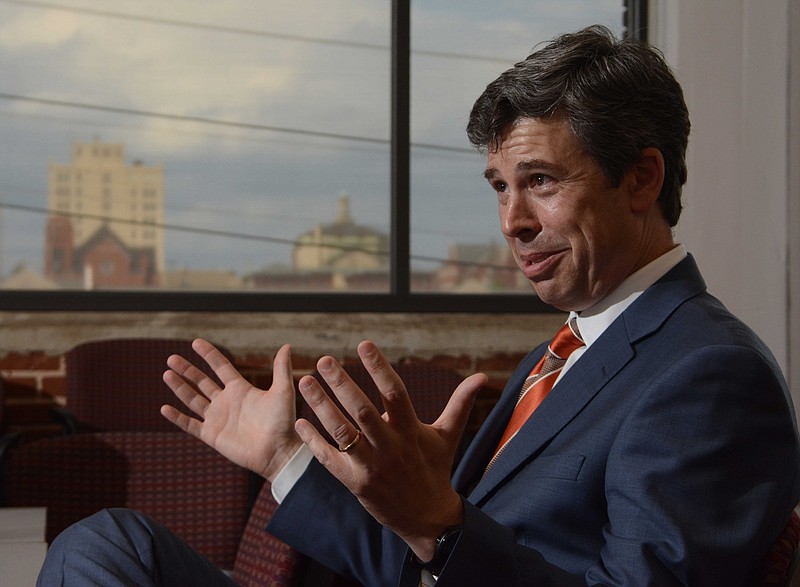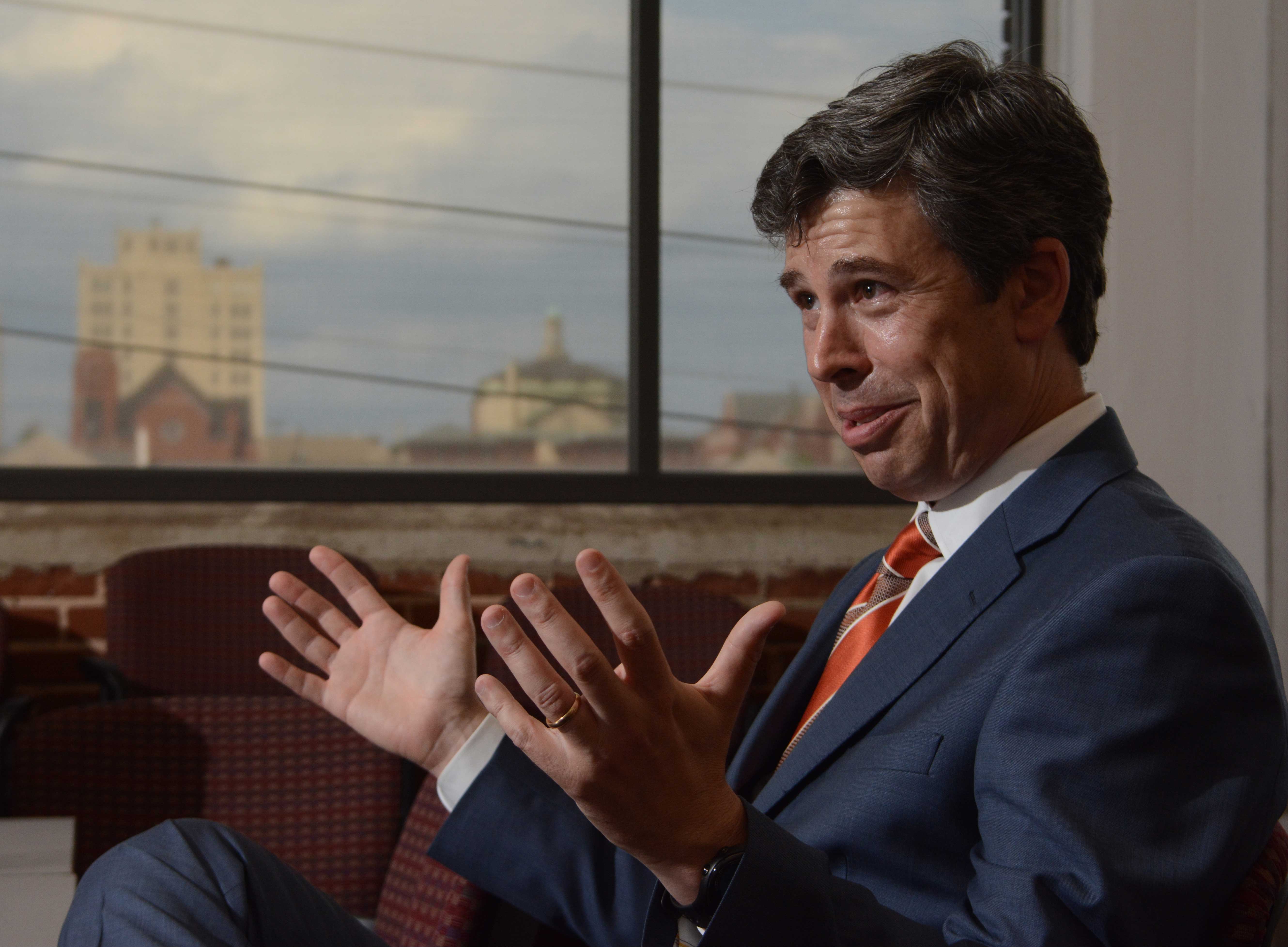Chattanooga is exploring the possibility of building light commuter rail throughout the city. But Mayor Andy Berke says a 17-year-old plan to connect the Scenic City to Atlanta with a bullet train is likely stopped in its tracks.
Speaking with Times Free Press reporters and editors last week, Berke said that while a high-speed rail along Interstate 75 might be neat, he doubts there is money or political will to build it.
"Any kind of intercity rail doesn't happen without large-scale federal investment," Berke said. "It's pretty clear that the federal government is not in a position right now to do large-scale infrastructure investments."
This is the first time a Chattanooga mayor has acknowledged the bullet train might not happen.
When the high-speed rail plan started in 1998, Bill Clinton was in the White House and Mayor Jon Kinsey was in City Hall.
Since then, Chattanooga has spent $1.3 million in local funds toward the first part of a $17.1 million study. In 2011, Georgia added $1.5 million and the Georgia Department of Transportation and Atlanta each put in $250,000. Those funds were used to get a $13.8 million grant for the research. The first tier of the environmental study is finished, and the second tier is slated to begin this year.
Atlanta and the state of Georgia pushed for the rail, which could help relieve congestion around Hartsfield-Jackson Atlanta International Airport.
But Chattanooga hasn't heard any meaningful updates, except that the studies are ongoing.
Ken Hays, president and CEO of the Enterprise Center, which originally handled the high-speed rail project for the city, said Thursday the city's transportation department now has the project. Transportation spokeswoman Marissa Bell said in an email that department officials talk periodically with the Georgia Department of Transportation, the lead agency on the project, to keep up.
GDOT spokeswoman Natalie Dale last week did not return calls or emails seeking comment on the high-speed rail project.
Meanwhile, Chattanooga has initiated another study to test the feasibility of converting seldom-used rail lines into a public transportation system.
City Council members recently pledged $290,000 from a federal transportation grant toward a $690,000 study for light rail.
Transportation Director Blythe Bailey told council members the study will look at possible routes, ridership, construction costs and overall interest in light rail.
Berke said the study was just the first step to see if light rail is worth it. And similar to the long-awaited high-speed rail plan, it won't happen without support.
"It only works if the community is behind it," Berke said. "It's a real investigation as to whether it's economically feasible and there's enough community support to make it realistic. And if there's not, we shouldn't do it."
Contact staff writer Louie Brogdon at lbrogdon@timesfreepress.com, @glbrogdoniv on Twitter or at 423-757-6481.

